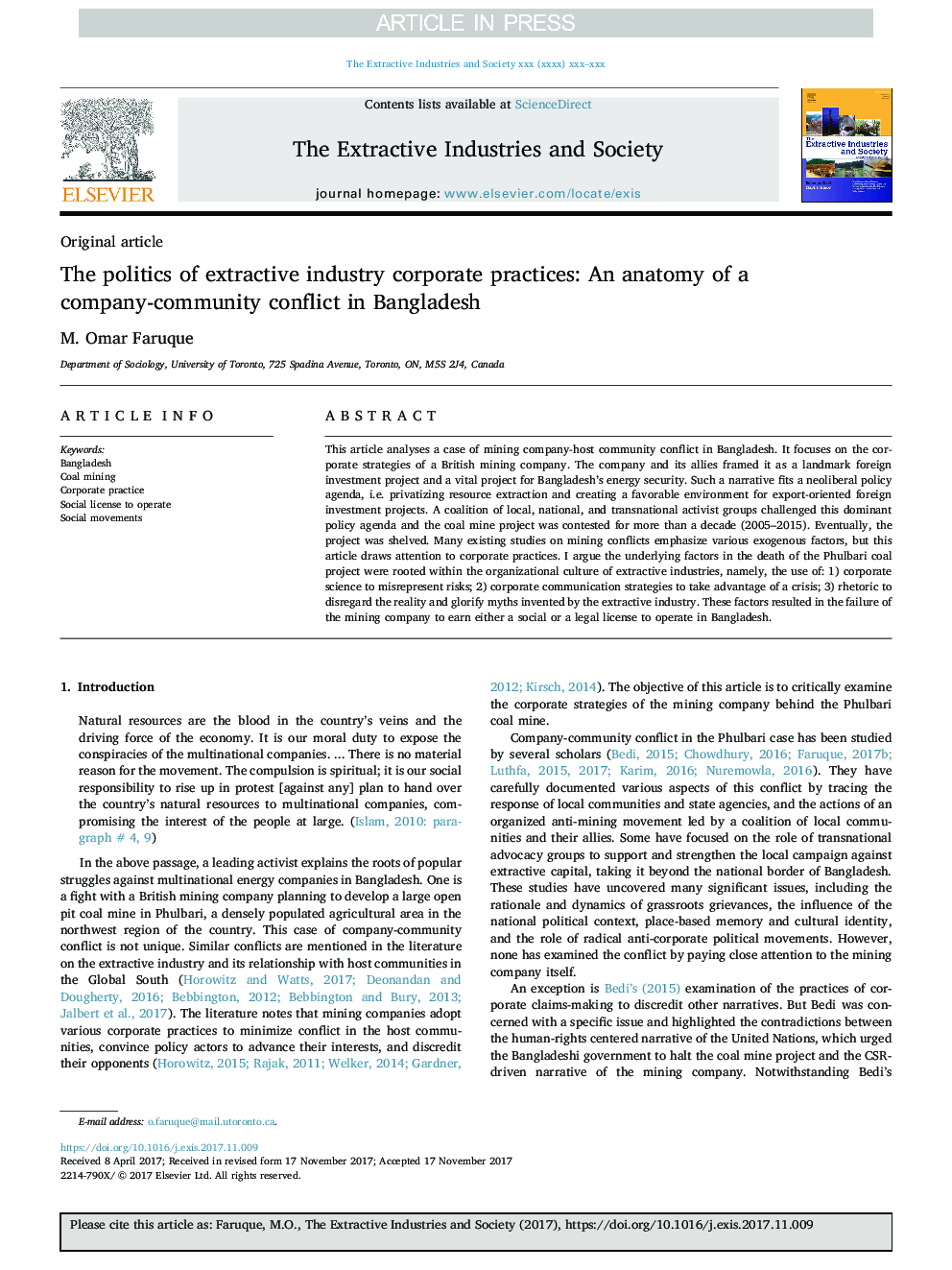| Article ID | Journal | Published Year | Pages | File Type |
|---|---|---|---|---|
| 7454287 | The Extractive Industries and Society | 2018 | 13 Pages |
Abstract
This article analyses a case of mining company-host community conflict in Bangladesh. It focuses on the corporate strategies of a British mining company. The company and its allies framed it as a landmark foreign investment project and a vital project for Bangladesh's energy security. Such a narrative fits a neoliberal policy agenda, i.e. privatizing resource extraction and creating a favorable environment for export-oriented foreign investment projects. A coalition of local, national, and transnational activist groups challenged this dominant policy agenda and the coal mine project was contested for more than a decade (2005-2015). Eventually, the project was shelved. Many existing studies on mining conflicts emphasize various exogenous factors, but this article draws attention to corporate practices. I argue the underlying factors in the death of the Phulbari coal project were rooted within the organizational culture of extractive industries, namely, the use of: 1) corporate science to misrepresent risks; 2) corporate communication strategies to take advantage of a crisis; 3) rhetoric to disregard the reality and glorify myths invented by the extractive industry. These factors resulted in the failure of the mining company to earn either a social or a legal license to operate in Bangladesh.
Related Topics
Life Sciences
Environmental Science
Management, Monitoring, Policy and Law
Authors
M. Omar Faruque,
